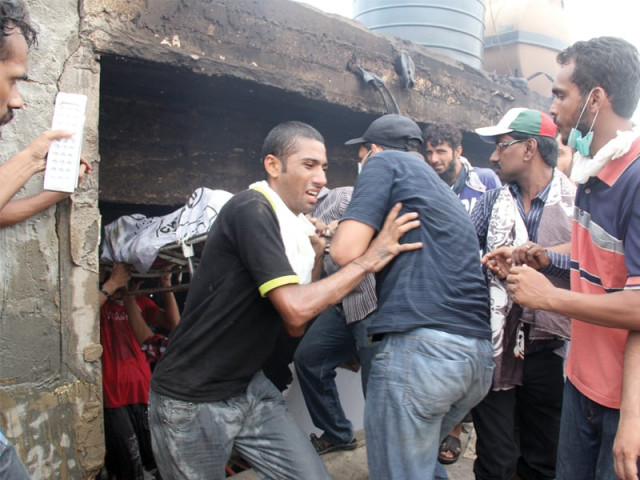Not all factory fires have ended in death, point out experts
The 2008 Berger Paints fire was more intense but none of the workers were killed because of an emergency exit system.

Factories in Karachi have seen infernos from which people have walked out safely.
The fire that gutted the Berger Paints factory in 2008 was possibly far more intense than the one that took place at the garments factory in Baldia on Tuesday night. None of the Berger workers were killed because a proper emergency exit system was in place there, said Tariq Moin, the secretary of the Fire Protection Association, a lobby for the promotion of occupational safety.
“It was a multinational company, which couldn’t compromise on international security standards,” he said. “Good companies conduct emergency drills every few months.”
It remains unclear if Ali Enterprises had trained its employees to avoid being trapped in a blazing building. But experts say it appears unlikely.
“Drills help identify all the bottlenecks. If a door is locked or an emergency exit blocked, it will all become apparent during an exercise,” said Moin.
The Factories Act of 1934 has clauses on occupational safety. But Pakistan lacks any law on emergency exits, said Syed Nadeem Arif of Environmental Management Consultants. “We urgently need a law and it should be firmly implemented.”
It is matter of time before more disasters strike the city, he said. “There are so many factories where owners don’t bother about safety precautions. This incident should wake all of us up.”
Industry officials say that owners of textile factories have a habit of avoiding local and international safety regulations to cut costs. Stopgap measures include placing fire extinguishers and creating exits just to pacify foreign buyers, they say. “As soon as the audit team goes, employees are made to work in congested condition again,” said one official.
Published in The Express Tribune, September 13th, 2012.



















COMMENTS
Comments are moderated and generally will be posted if they are on-topic and not abusive.
For more information, please see our Comments FAQ